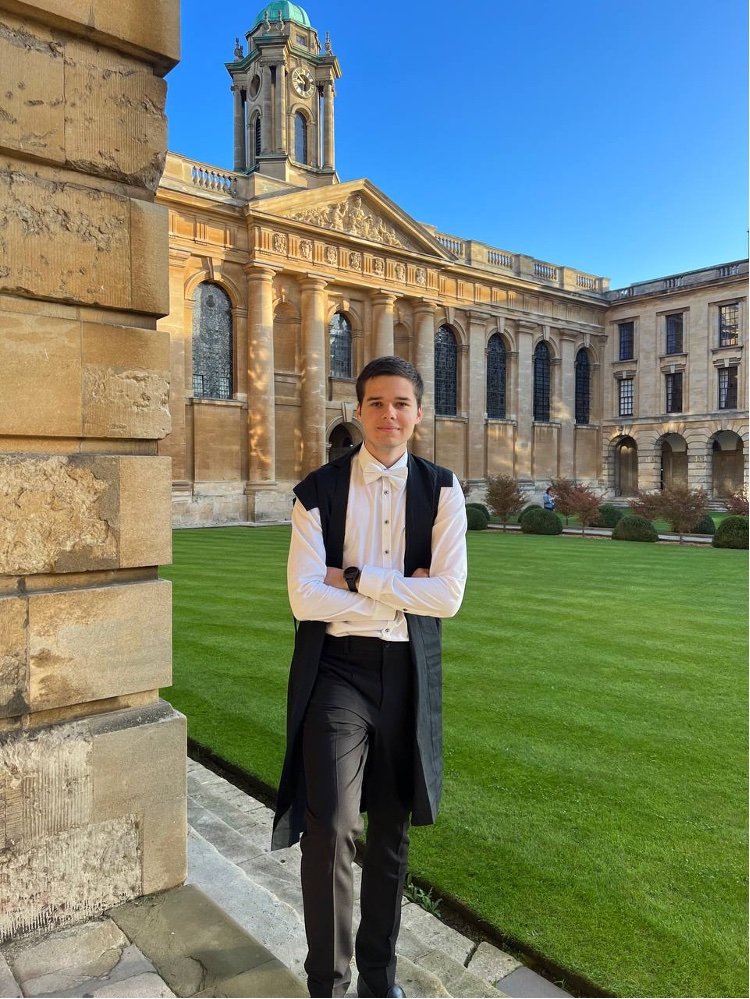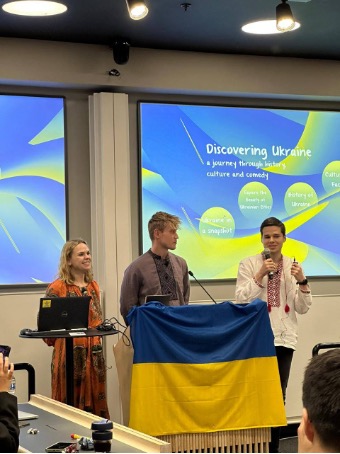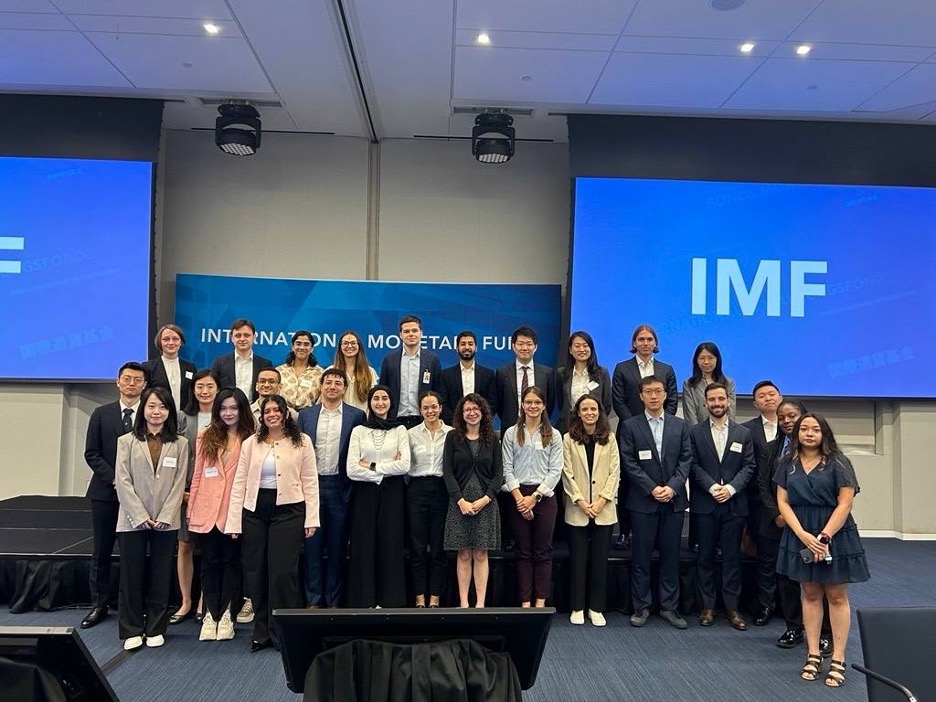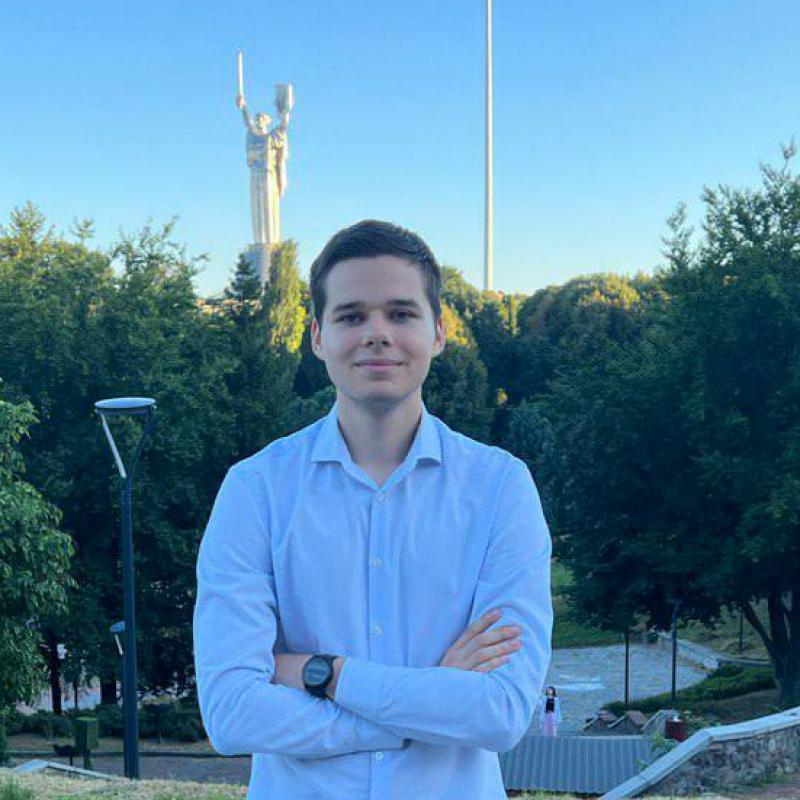An MPP adventure
2023 MPP student Erik Kucherenko offers a personal reflection of his year on the MPP.

From hope to reality
2022 was a disastrous year for Ukraine. On 24 February, my home country was invaded by Russia. Working in the Ukrainian Parliament at the time, I burnt the midnight oil desperately trying to contribute to building an international diplomatic, military, economic, and legal coalition to stop the aggression.
It was during this time that I stumbled upon the description of the School’s flagship MPP programme. Struck by its relevance for my career, I submitted my application in November 2022.
I received my acceptance letter in March and in June, as I sat in my favourite café in Kyiv, right in front of the iconic Golden Gates monument, I received a positive response from Oxford University Graduate Scholarships for Ukraine. I was off to Oxford.
Michaelmas: getting used to miracles
The first two weeks at the School are dedicated to induction, an opportunity to get to know classmates and start creating team spirit; the MPP is a team sport, as we were often reminded. The highlight for me was a spy game where, working in teams, we had to decipher a code and save the world (yes, the stakes are usually quite high in MPP simulations). I was absolutely struck by the quick reactions, eloquence and problem-solving skills of my teammates; this activity set the bar high for the rest of the year.
Michaelmas was a chance to delve into Foundations – the philosophic issues behind key policy problems – where our readings and personal experiences could make a difference, and where through immersive case studies we discovered the differences of our views and learnt from them, persuading others and being persuaded.
Our economics classes had a profound impact on me. I grew interested in behavioural economics and its application for public policy. I enjoyed learning about cost-benefit analysis and its application in policy contexts. I took an optional module on promoting innovation and was able to apply this knowledge later in the year when I started working on the 2030 Innovation Strategy of Ukraine.

Yet Michaelmas was memorable beyond studies. With fellow students from Ukraine, we shared knowledge on our history, language, culture, treating classmates to Ukrainian cuisine. This was one of the first country-focused event, kicking off an amazing series of other country events and continental cultural nights. These events brought our amazing 150-strong together, allowed to share our cultures and nurture lifelong bonds.
Michaelmas was also the time to start thinking about a summer project and future careers.
Hillary: noticing what was always there
After winter holidays comes Hillary term and, if there is such a thing as a midlife crisis, there must be a middle Oxford crisis, a sudden realisation that it is no longer so difficult to count the days until the end of the programme.
This was the term I discovered Blackwells bookstore, home to the legendary Norrington room, one of the largest rooms with books in the world. Its cozy atmosphere, with endless rows of recently published books, was a fantastic addition to the modernity of the School and medieval vibe of college libraries and the famous formal dinners (the ‘formals’). Realising I was lagging behind in visiting colleges I doubled down and in the end managed 31 out of 44; visiting each college is a memory in itself, allowing you to explore their chapels, gardens, dining halls and libraries.
This term we focused on three subjects: political science, law, and evidence-based policy-making. We explored statistical concepts essential for understanding policy research, and had an opportunity to analyse quantitative studies. We learnt about the process of policy design and adaptation, and had an opportunity to design a detailed policy evaluation plan.
Trinity: climax of the Oxford experience
And then comes Trinity term where amidst the warmth of spring, blossoming of trees and flowers, you choose subjects from around 20 ‘options’, a range of topics in which to take a deeper dive, such as cybersecurity, tax or housing policy, in addition to applied policy modules.
I enjoyed my main courses on education and healthcare policies, also participating in an intensive week-long, case-based course on leadership in a polarised world taught by Professor Karthik Ramanna, and following the course on economics of revitalisation of left behind places taught by world-renowned economist Professor Sir Paul Collier. The course was based on his newly published book, so we had the opportunity to be among the first to read it.
I took a brilliant course on public financial management taught by the Chair of the Office for Budget Responsibility (OBR), Richard Hughes. I learnt so much about the design of fiscal rules and had the opportunity to apply this knowledge to designing fiscal rules and financial management framework for a fictitious developing country that has just discovered vast oil reserves.

Another applied policy module that I audited was on the International Monetary Fund (IMF) and the most relevant challenges related to its operation. Taught by Dean Ngaire Woods, a highlight of the course was a discussion with former and current IMF Executive Directors from the UK and Egypt, as well as representative of IMF staff. This level of immersion allowed us to go beyond theoretic understand and receive practical insights into how this key organisation functions.
This course became even more relevant as my application for a summer project in the IMF was accepted. The summer project is a unique opportunity available to MPP students – and I am very grateful to the School for this chance. This summer I joined the IMF’s Institute of Capacity Development to improve the way the IMF works with political economy consideration to make its technical advice more effective and impactful.
The last but not least highlight of Trinity was activities organised by the student-led education policy cluster generously supported by Dr Rachel Hinton, a Visiting Fellow of Practice in the School and senior adviser at the UK’s Foreign, Commonwealth and Development Office (FCDO). Thanks to her support, we were able to participate in and contribute to the Education World Forum, a meeting in London of over 100 education ministers from across the globe. We hosted some of the Forum participants, including the Global Director for Education of the World Bank Luis Benveniste and the Director of UNESCO International Institute for Educational Planning Martin Benavides, for a number of events with MPP students in Oxford and organised an institutional exchange with the UCL Education department – visiting them in London and hosting them in Oxford afterwards, exchanging experience and views.
We finished the term with an absolutely fantastic award-winning immersive simulation of the North Korean crisis, where each student was assigned into 6 teams representing 6 countries involved in the crisis. Everyone was given a personal role, and I played the role of the chief of staff of the prime minister of Japan. This was an absolutely indispensable experience, teaching us about organising and coordinating teamwork, defining priorities, and building coalitions around your goals.
What’s next
The future is uncertain. Yet with this background, I am sure that we are very well-prepared for whatever comes. I want to make a difference with my summer project at the IMF and make capacity-building activity more effective globally. I want to return to Ukraine to focus on strengthening its resilience in the face of ongoing Russian aggression. I want to support economic recovery, mitigate the war’s influence on the life of Ukrainians, and contribute to the end of the Russian aggression based on international law.
In the end, addressing big challenges is why I got to MPP in the first place. I am now committed as never before to this mission.
Follow Erik on X and Instagram to see what he is up to during his summer project at the IMF.

